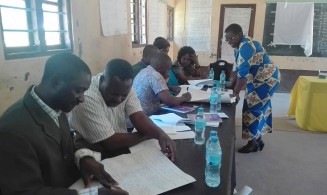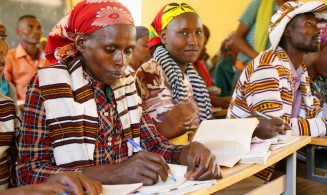

A fellow’s success story– Susan Berdie: Ghana embraces lifelong learning for all in its new education sector plan
One of the aims of the Government of Ghana’s recently adopted Education Sector Plan 2018–2030 is to increase equitable access to quality non-formal education by promoting key components of the Belém Framework for Action, the outcome document of the Sixth International Conference on Adult Education (CONFINTEA VI). The document calls on UNESCO Member States to strengthen adult learning and education in five key ‘areas of action’, namely (1) policy; (2) governance; (3) financing; (4) participation, equity and inclusion; and (5) quality. Together with the subsequent Recommendation on Adult Learning and Education (2015), it presents a strategic guide for the global development of ALE within the perspective of lifelong learning.
The Ghanaian Ministry of Education’s Non-formal Education Division (NFED), which coordinates non-formal education in the country has sent Ms Susan Berdie, then Deputy Director of the NFED’s Materials Development Section, to participate in the CONFINTEA Fellowship Programme in 2011 pursued by the UNESCO Institute for Lifelong Learning. Under the supervision of UIL experts, she developed a draft strategy for implementing the Belém Framework for Action in Ghana, which has now been used to inform the country’s Education Sector Plan.
When asked about her time as a UIL fellow, Ms Berdie remarked, ‘I had never been exposed to so much information on adult and non-formal education before. I found the input from UIL invaluable.’ The NFED looks forward to receiving further technical support from the Institute in future.
Adult and non-formal education is a central theme in Ghana’s newly endorsed Education Sector Plan: it is seen as a way to meet the learning needs of individuals who lack access to formal education, thereby increasing their employment opportunities and contributing to poverty alleviation. Low literacy rates and gender inequalities persist in Ghana, particularly in the rural areas, and provision of quality adult education programmes is seen as a way to address this.
From 2011 to 2017, UIL welcomed 38 fellows (19 men and 19 women, 31 of whom were government officials and 7 NGO representatives) from 32 countries. The last cycle was organized in November 2017.







